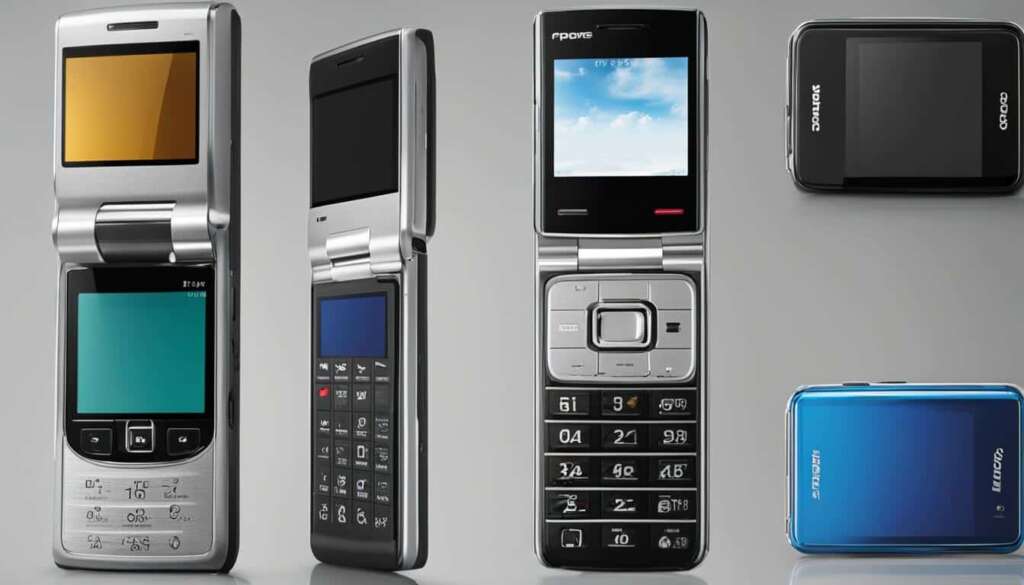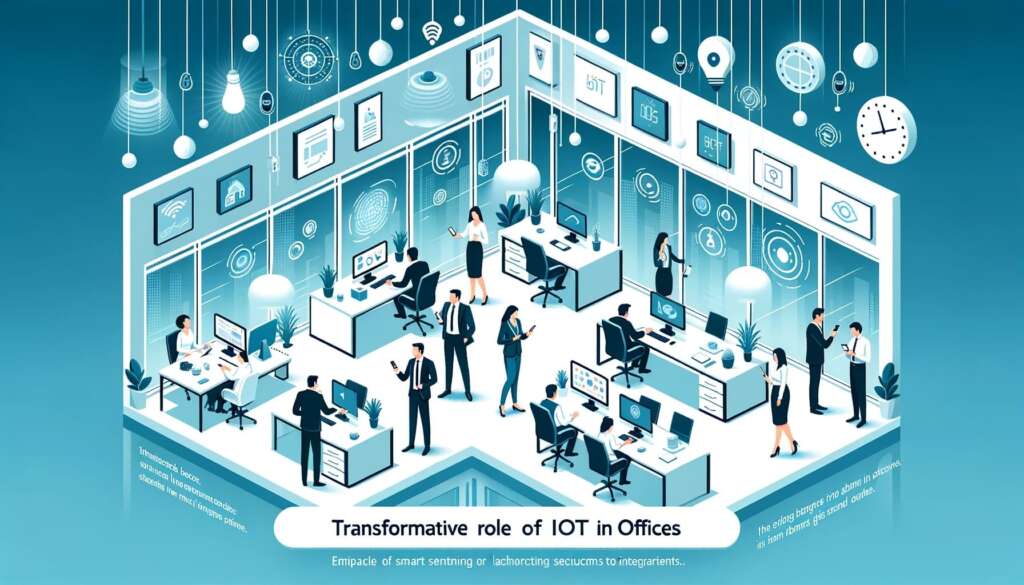Table of Contents
The mobile app development industry is continuously evolving, and it is crucial for businesses to stay ahead of the latest trends. According to Statista, the global mobile app market is expected to reach $614.40 billion by 2026. To remain competitive, businesses need to incorporate the following trends in their mobile app development strategies.
In this article, we will explore the latest trends in mobile app development that can help businesses stay ahead in the ever-changing digital landscape. From Internet of Things (IoT) app integration to developing for foldable devices, we will dive into the exciting opportunities that await businesses in the mobile app realm.
Stay tuned to discover how these trends, including 5G technology, wearable device development, beacon technology, mobile commerce, and artificial intelligence (AI), can revolutionize your mobile app offerings and provide exceptional user experiences.
Internet of Things (IoT) App Integration
The Internet of Things (IoT) is revolutionizing the way we interact with and control devices in our homes and workplaces. With the increasing adoption of smart home technology, mobile apps have become essential in integrating and managing IoT devices. These apps empower users to control various aspects of their homes, such as adjusting temperature settings, locking doors, monitoring security systems, and even managing energy consumption.
The global IoT market is projected to reach $318 billion by 2023, with a significant portion attributed to software, including mobile apps. This presents a massive opportunity for businesses to leverage IoT in their mobile app development strategies. By integrating IoT capabilities into their apps, businesses can enhance the user experience and offer innovative solutions that cater to the growing demand for smart home technology.
One of the key advantages of IoT app integration is the ability to create a connected ecosystem where different devices can seamlessly communicate with each other. For example, a mobile app that integrates with smart lights, thermostats, and security systems can provide a comprehensive home automation solution. Users can automate tasks, create personalized settings, and receive real-time updates, all from their mobile devices.
The integration of IoT into mobile apps opens up endless possibilities for businesses to enhance their offerings and provide value-added services to their customers. It allows for the creation of smart, interconnected environments that improve convenience, efficiency, and overall quality of life.
Table: Benefits of IoT App Integration
| Benefits | Description |
|---|---|
| Enhanced User Experience | Mobile apps with IoT integration provide users with greater control and convenience, allowing them to manage and monitor their connected devices from anywhere. |
| Improved Efficiency | By automating tasks and optimizing energy consumption, IoT-enabled apps can help businesses and consumers save time, money, and resources. |
| Personalized Solutions | IoT integration allows for the creation of customized settings and preferences, tailoring the user experience to individual needs and preferences. |
| Data Insights | By collecting and analyzing data from connected devices, businesses can gain valuable insights into customer behavior, usage patterns, and product performance. |
With the rapid growth of the IoT market, businesses that embrace IoT app integration can gain a competitive edge and position themselves as leaders in their respective industries. Whether it’s controlling smart home devices, optimizing energy consumption, or providing personalized services, IoT-enabled mobile apps offer endless possibilities for businesses to innovate and meet the evolving needs of their customers.
Apps for Foldable Devices
Foldable devices are becoming increasingly popular, and businesses need to adapt their mobile apps to cater to this growing market. By optimizing their apps for foldable devices, businesses can provide users with a seamless and immersive experience across different screen sizes. Whether it’s a smartphone or a tablet, foldable devices offer unique opportunities for innovative app development and enhanced user experiences.
One of the key considerations when developing apps for foldable devices is user experience. Users expect apps to adapt smoothly to different screen configurations, such as folding and unfolding displays. This requires careful design and development to ensure that app elements, such as user interfaces and content, adjust seamlessly to the changing screen sizes and orientations.
Another crucial aspect of developing apps for foldable devices is taking advantage of the device’s unique features. Foldable devices often offer enhanced multitasking capabilities, allowing users to run multiple apps simultaneously or use split-screen functionalities. By leveraging these features, businesses can create apps that take full advantage of the device’s form factor and provide users with a more productive and immersive experience.
Table: Comparison of Foldable Devices
| Device | Screen Size (when unfolded) | Form Factor | App Integration Challenges |
|---|---|---|---|
| Samsung Galaxy Fold | 7.3 inches | Phone and Tablet | Adapting UI to different screen configurations |
| Motorola Razr | 6.2 inches | Phone | Optimizing app performance for folding mechanism |
| Huawei Mate X | 8 inches | Phone and Tablet | Ensuring seamless app experiences across dual screens |
In conclusion, developing mobile apps for foldable devices is an essential consideration for businesses in today’s mobile app landscape. By optimizing apps for foldable devices, businesses can provide users with a seamless and immersive experience and take advantage of the unique features offered by these devices. With the projected growth of foldable devices in the coming years, businesses that embrace this trend in their mobile app development strategies are well-positioned to capitalize on the evolving needs and preferences of their users.
5G Technology
The rollout of 5G technology is set to revolutionize mobile app development. With its faster speeds, lower latency, and improved network efficiency, 5G will enable developers to create more advanced and immersive mobile apps. The number of 5G smartphone connections is expected to double between 2022 and 2023, providing a significant boost to app functionality. Developers should leverage 5G capabilities to enhance app performance, speed, and user experience.
With the introduction of 5G, mobile apps will experience lightning-fast download and upload speeds, reducing lag and improving overall performance. This advancement opens up new possibilities for high-quality video streaming, real-time gaming, and augmented reality experiences within mobile apps. Users will be able to enjoy seamless and immersive content without interruptions or buffering.
Furthermore, the low latency provided by 5G technology will enable real-time interactions and instant responsiveness in mobile apps. This will enhance user engagement and enable applications that require immediate feedback, such as remote control functionalities or live event streaming. With the reduced response time, users will experience a more natural and fluid interaction with mobile apps.
In addition, the improved network efficiency of 5G will allow for more simultaneous connections and better handling of high-demand applications. Mobile apps can leverage this enhanced capacity to deliver robust features and functionalities that were previously limited by network constraints. Businesses can develop mobile apps that leverage the power of 5G to provide seamless user experiences, even in crowded areas or during peak usage times.
Benefits of 5G Technology in Mobile App Development:
- Lightning-fast download and upload speeds
- Reduced lag and improved performance
- High-quality video streaming and real-time gaming
- Instant responsiveness and real-time interactions
- Enhanced user engagement and fluid interaction
- Improved network efficiency and simultaneous connections
| 5G Network Speed Comparison | Download Speed | Upload Speed | Latency |
|---|---|---|---|
| 4G | 50 Mbps | 25 Mbps | 50 ms |
| 5G | 1-10 Gbps | 1-5 Gbps | 1 ms |
Development for Wearable Devices
The rise of wearable technology has opened up new opportunities for businesses to enhance their mobile app offerings. By developing apps specifically designed for wearable devices such as smartwatches and fitness bands, businesses can provide a seamless and personalized user experience.
Wearable devices offer users the convenience of accessing information and performing tasks directly from their wrists, making it essential for businesses to consider optimizing their mobile apps for these devices. Whether it’s tracking fitness goals, receiving notifications, or controlling smart devices, wearable apps can enhance user engagement and make everyday tasks more convenient.
Integration with wearable devices allows businesses to tap into the growing market of tech-savvy consumers who prefer the convenience and functionality of wearable technology. According to Statista, the global wearable devices market is projected to reach a value of $93.22 billion by 2026. By developing mobile apps that seamlessly integrate with wearables, businesses can cater to this growing demand and gain a competitive edge.
Benefits of Developing Apps for Wearable Devices
- Enhanced User Experience: Wearable devices provide a more intuitive and hands-free experience, allowing users to access information and services seamlessly. By developing apps for wearables, businesses can provide a more convenient and personalized user experience.
- Increased Engagement: Wearable apps offer the opportunity to keep users engaged throughout the day, whether it’s through health and fitness tracking, social media updates, or personalized notifications. This increased engagement can lead to higher user retention and loyalty.
- Access to New Data: Wearable devices collect a wealth of data that can be utilized by businesses to gain insights into user behavior and preferences. This data can be leveraged to provide more personalized experiences and targeted marketing campaigns.
- Opportunity for Innovation: Developing for wearable devices allows businesses to explore new and innovative ways to interact with users. From voice commands to gesture recognition, wearables offer unique opportunities for businesses to differentiate themselves and provide cutting-edge experiences.
| Wearable Device | Market Share |
|---|---|
| Smartwatches | 45% |
| Fitness Bands | 30% |
| Smart Glasses | 15% |
| Others | 10% |
The table above showcases the market share of different wearable devices. Smartwatches currently dominate the market, followed by fitness bands, smart glasses, and other types of wearables. This data highlights the importance of developing mobile apps for smartwatches and fitness bands, as they are the most widely adopted wearable devices.
In conclusion, developing mobile apps for wearable devices is a strategic move for businesses looking to enhance user experiences, increase engagement, and tap into the growing wearable technology market. By optimizing apps for devices like smartwatches and fitness bands, businesses can stay ahead of the curve and provide innovative solutions that cater to the evolving needs of consumers.
Beacon Technology
Beacon technology has revolutionized the way businesses engage with customers in physical locations. By leveraging proximity marketing tactics, mobile apps can provide personalized notifications, track buyer behavior, and offer location-based services. This technology offers significant opportunities for businesses to enhance their mobile app development strategies and improve customer experiences.
Proximity marketing, made possible through beacon technology, allows businesses to send relevant and timely notifications to users when they are in close proximity to a beacon device. This form of targeted marketing enables businesses to deliver personalized offers, discounts, and promotions directly to users’ smartphones based on their location. By integrating beacon technology into mobile apps, businesses can create targeted marketing campaigns that drive customer engagement and increase sales.
Furthermore, beacon technology facilitates the tracking of buyer behavior and preferences. By collecting data on customer interactions with beacons, businesses can gain valuable insights into customer preferences, foot traffic patterns, and purchasing habits. This data can be used to optimize marketing strategies, improve store layouts, and enhance overall customer experiences. The integration of beacon technology in mobile app development opens up new possibilities for businesses to understand and cater to their customers’ needs.
![]()
In summary, beacon technology presents a wealth of opportunities for businesses in the realm of mobile app development. By leveraging proximity marketing, businesses can deliver personalized notifications and offers to customers in real-time. The ability to track buyer behavior and preferences provides valuable insights that can be used to optimize marketing strategies. With the growing adoption of beacon technology in various industries, businesses that incorporate this technology into their mobile app development strategies can gain a competitive edge and provide enhanced customer experiences.
Mobile Commerce: Driving Business Growth in the Age of E-commerce
In today’s digital age, mobile commerce has become a dominant trend, revolutionizing the way businesses engage with customers. With the rapid proliferation of smartphones and the widespread availability of mobile apps, consumers have embraced the convenience of shopping on their mobile devices. To stay competitive in the market, businesses need to prioritize mobile app development and create seamless e-commerce experiences for their customers.
According to recent statistics, mobile commerce accounted for more than 72.9% of total e-commerce sales in 2021. This staggering growth highlights the importance of investing in mobile app development to tap into the ever-expanding mobile commerce market. By providing users with intuitive interfaces, secure payment gateways, and personalized shopping experiences, businesses can enhance customer satisfaction and drive sales.
| Benefits of Mobile Commerce | Examples |
|---|---|
| Convenience and Accessibility | Customers can shop anytime, anywhere, with a few taps on their smartphones. |
| Personalization | Apps can offer tailored recommendations, promotions, and rewards based on user preferences and purchase history. |
| Seamless Integration | Apps can integrate with various payment gateways and loyalty programs, streamlining the checkout process. |
| Enhanced User Experience | Intuitive interfaces and smooth navigation contribute to a positive shopping experience. |
In addition to traditional e-commerce functionalities, mobile commerce apps can leverage the power of push notifications to engage customers and drive sales. By sending personalized offers, order updates, and abandoned cart reminders, businesses can effectively nurture customer relationships and increase conversions.
As the mobile app development landscape continues to evolve, harnessing the potential of mobile commerce is essential for businesses looking to thrive in the digital marketplace. By investing in mobile app development and incorporating user-friendly e-commerce features, businesses can leverage the power of mobile commerce to generate new revenue streams and secure long-term growth.
Artificial Intelligence (AI)
Artificial Intelligence (AI) and machine learning have become integral to mobile app development. The use of AI in mobile apps brings advanced capabilities and enhances the user experience. With AI, mobile apps can incorporate features like image recognition, sentiment analysis, speech recognition, and predictive maintenance. This allows businesses to offer personalized and intelligent experiences to their users.
Apple’s Core ML 3 framework has made AI integration more accessible for developers. This framework provides tools and resources for incorporating AI models into mobile apps, making it easier to leverage AI technology in app development. By using AI algorithms, mobile apps can analyze user behavior, make data-driven recommendations, and adapt to individual preferences.
AI-powered mobile apps can revolutionize various industries, including healthcare, finance, retail, and entertainment. The ability to automate processes, provide real-time insights, and deliver personalized experiences makes AI a game-changer in mobile app development.
The integration of AI in mobile app development is becoming increasingly important as businesses seek to stay competitive in the digital landscape. By harnessing the power of AI and machine learning, businesses can create mobile apps that are more intuitive, efficient, and engaging for their users.

| Benefits of AI in Mobile App Development | Examples of AI-Powered Mobile Apps |
|---|---|
|
|
Conclusion
The landscape of mobile app development is constantly evolving, and businesses need to stay up-to-date with the latest trends to create successful mobile apps. By incorporating trends such as IoT integration, foldable devices, 5G technology, wearable app development, and AI, businesses can enhance their mobile app offerings and provide exceptional user experiences.
The integration of IoT devices with mobile apps presents significant opportunities for businesses to leverage the growing IoT market. By optimizing mobile apps for foldable devices, businesses can cater to the increasing demand for these innovative gadgets. Additionally, the rollout of 5G technology revolutionizes mobile app development by enabling developers to create more advanced and immersive apps.
Developing mobile apps for wearable devices allows businesses to provide a seamless and personalized user experience. Beacon technology, on the other hand, enhances the customer experience by providing personalized notifications and location-based services. Lastly, mobile commerce apps have become essential for businesses to remain competitive in the market, as a significant percentage of e-commerce sales now come from mobile devices.
Looking ahead, the future of mobile app development lies in embracing these trends and constantly adapting to the ever-changing industry. By incorporating IoT, foldable devices, 5G technology, wearables, and AI into their mobile app strategies, businesses can stay ahead and deliver innovative mobile app solutions that meet the evolving needs of their customers.
FAQ
What are the latest trends in mobile app development for businesses?
The latest trends in mobile app development for businesses include IoT integration, developing apps for foldable devices, leveraging 5G technology, developing for wearable devices, incorporating beacon technology, focusing on mobile commerce, and utilizing artificial intelligence (AI) and machine learning. These trends help businesses enhance their mobile app offerings and provide exceptional user experiences.
How can businesses integrate Internet of Things (IoT) into their mobile apps?
Businesses can integrate IoT into their mobile apps by allowing users to control smart home devices, adjust temperature, lock doors, and connect to security systems through their mobile apps. This integration presents significant opportunities for businesses to leverage IoT in their mobile app development strategies.
How can businesses optimize their mobile apps for foldable devices?
Businesses can optimize their mobile apps for foldable devices by providing a seamless user experience that adjusts to different screen sizes. This ensures that the app functions properly and provides an enjoyable user experience on foldable devices, which are gaining popularity.
How does 5G technology revolutionize mobile app development?
5G technology revolutionizes mobile app development by offering faster speeds, lower latency, and improved network efficiency. This enables developers to create more advanced and immersive mobile apps. Developers should leverage 5G capabilities to enhance app performance, speed, and user experience.
How can businesses develop mobile apps for wearable devices?
Businesses can develop mobile apps for wearable devices by optimizing their apps for smartwatches and fitness bands. This allows businesses to provide a seamless and personalized user experience on wearable devices, which are steadily growing in popularity.
What are the benefits of using beacon technology in mobile app development?
Beacon technology enhances the customer experience in mobile apps by providing personalized notifications, tracking buyer behavior, and offering location-based services. This technology allows businesses to offer relevant and timely information to app users, improving their overall experience.
Why is mobile commerce important for businesses?
Mobile commerce is important for businesses because a significant percentage of e-commerce sales now come from mobile devices. Developing mobile commerce apps enables businesses to remain competitive in the market and provide a seamless and user-friendly shopping experience to their customers.
How can businesses incorporate artificial intelligence (AI) into their mobile apps?
Businesses can incorporate AI into their mobile apps by using features like image recognition, sentiment analysis, speech recognition, and predictive maintenance. AI-powered mobile apps can provide personalized and intelligent user experiences, enhancing customer satisfaction.
What should businesses keep in mind about the future of mobile app development?
The landscape of mobile app development is constantly evolving, and businesses need to stay up-to-date with the latest trends to create successful mobile apps. By embracing trends like IoT integration, foldable devices, 5G technology, wearable app development, and AI, businesses can stay ahead in the competitive mobile app development industry.
Source Links
- https://appinventiv.com/blog/mobile-app-development-trends/
- https://www.lambdatest.com/blog/mobile-app-development-trends/
- https://buildfire.com/mobile-app-development-trends/













